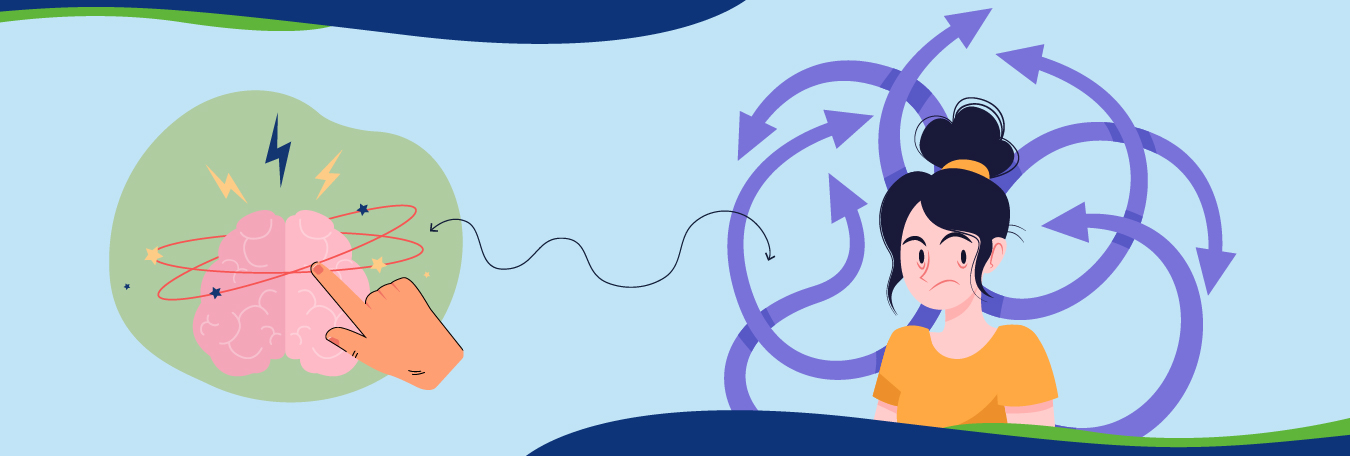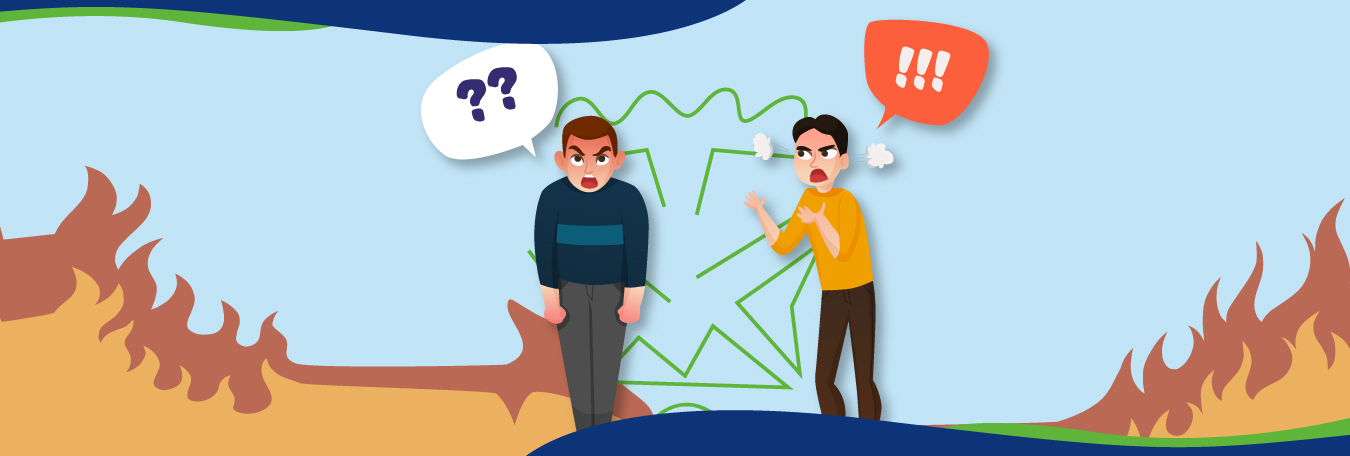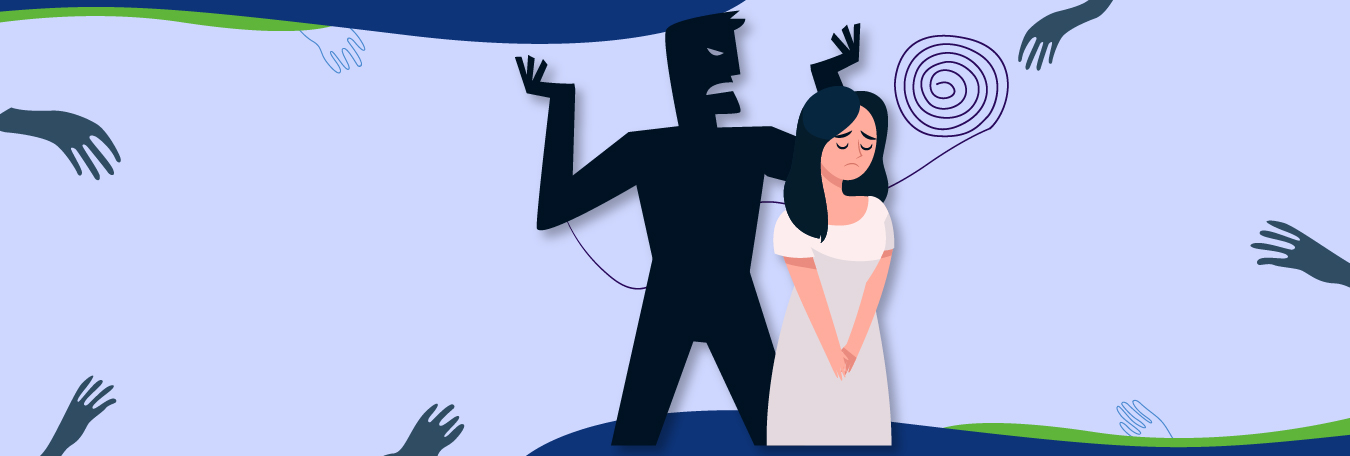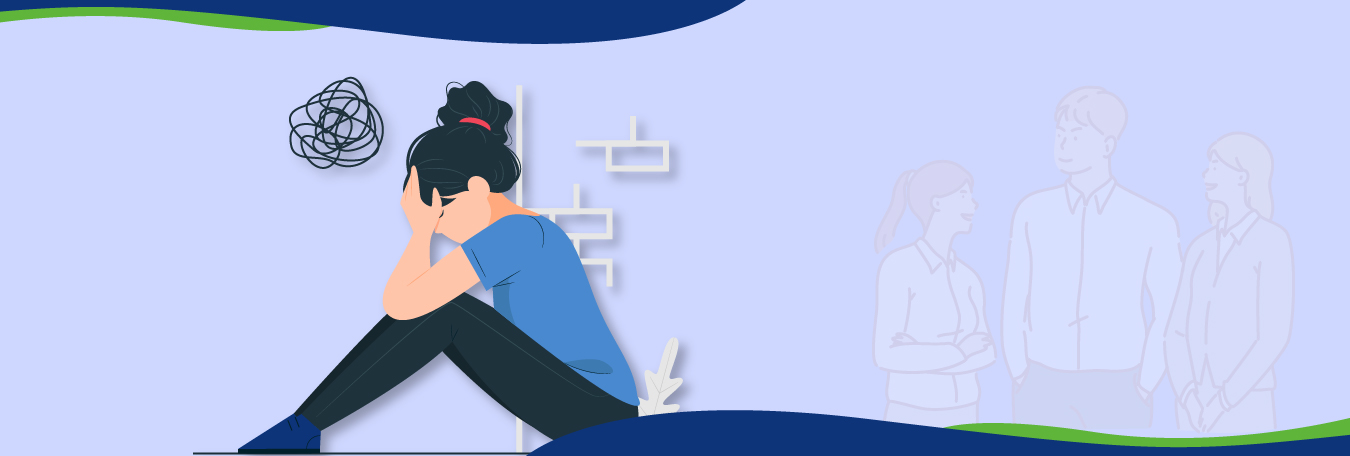Psychotic depression is not something that should be underestimated. It is essentially a sub-form of depression that displays signs of clinical depression and psychosis together. We can help you elaborate on this extremely debilitating mental condition, which can make or break you or the affected individual you know if it is left untreated. Let’s start your psychoeducation about depressive psychosis:
Defining Psychosis
Psychosis is a predominant mental symptom of many of the debilitating mental conditions. Examples include schizophrenia and schizoaffective disorders. It is essentially a break from reality, which is also characterized by sub-symptoms such as hallucinations and delusions, and sometimes uncommonly, disgruntled speech or behavior and paranoia. Hallucinations are basically seeing, feeling, or hearing things that are not there, while delusions are grandiose yet irrational beliefs.
Defining Depression
Called clinical depression or officially called major depressive disorder, depression is a serious mental condition that is capable of affecting the mood, physical health, and everyday life of the affected individual. Depression affects 5% of the global population annually and is one of the main causes of suicide(1).
Symptomatically it is defined as the affected individual having no interest in activities, even the ones they had interest in previously, and perpetual sadness in addition to:
- Fluctuating weight changes
- Issues while sleeping
- Problems with cognitive processes such as difficulty concentrating
- Hopelessness and overwhelmed about the future
- Suicidal thoughts and behavior
- Extreme fatigue – basically the opposite of hyperactivity
Read More: Drug-Induced Psychosis: Is It Possible?
What is Psychotic Depression?
Psychotic depression is a subform of clinical depression but here the affected individuals also go through a break from reality, which is the main characteristic of psychosis. A mental symptom like psychosis is one of the main symptoms of depression and the overlapping of similar symptoms often leads to being misdiagnosed as something else 27% of the time as proven in a 2008 clinical study of the same topic matter(2).
Depression psychosis is considered to be more dangerous than MDD due to one simple reason, which is the break from reality. People with psychotic depression are likely to suffer from the symptoms below as it is essentially depression with psychotic features:
- Increased risk of suicide due to suicidal behavior
- Symptoms of increasingly melancholy features
- Intensification of symptoms pertaining to both, psychosis and depression
- A greater risk of self-harm, which is often evidenced by cuts on the hands
How Does Psychotic Depression Differ From Clinical Depression
While they may seem similar, psychotic depression differs from clinical depression as the symptoms of psychotic depression do essentially differ a bit. Psychosis in another mental condition, say schizophrenia, can perhaps shed some light on the differences between these two kinds of depression subforms.

Signs of psychotic depression are more in line with the themes of depression, for example, the major psychotic symptoms tend to relate more to something like this – worthlessness or failure but the signs of psychosis found in schizophrenia are highly implausible and often irrational and even extremely bizarre sometimes. There is even legit paranoia sometimes in the hallucinations or delusions related to schizophrenia, for example, seeing secret agents raiding your house even when no one comes in or out of the house but family or friends.
Diagnosis of psychotic depression is often difficult to ascertain because affected individuals, especially men, are afraid of the perceived stigma that comes attached to this kind of mental condition. What they don’t get is that treatment is a necessity and that will only become available once the said condition has been diagnosed accurately. As mentioned before, misdiagnosis is also apparent because many of the other symptoms of depressive psychosis can overlap with clinical depression, frequently making it difficult for experts to make an accurate diagnosis.
Read More: Is Crying In Your Sleep A Sign Of Depression?
What Are The Risk Factors Associated With Psychotic Depression
While depression with psychosis may have a genetic component and link, it can be exacerbated for a range of different reasons. These can include factors such as bereavement, relationship problems, financial problems, health problems, and recent or past traumatic experiences. But still, the main reason one gets psychotic depression is the family predisposition. If one of your family members, even your brother or sister is diagnosed with it, it is probably the case you will also suffer from psychotic depression. Older adults are more at risk of psychosis from depression with around 45% of the older population already suffering from psychotic depression(3). In addition to that, women are at greater risk of a diagnosis when compared to men. Furthermore, the presence of sleep deprivation, certain prescription medications, and the misuse of alcohol or drugs can increase the chances of both depression and psychosis.
Treatment for Psychotic Depression
Severe depression with psychotic features is meant to be treated as there will be dire consequences for those who leave it untreated, especially for a long period of time. It is considered to be a psychiatric emergency because the affected individual is at an increased risk of suicidal behavior and thoughts, in addition to that it is also capable of keeping family members and friends on the self-harm alert for the affected individual. Time is critical, especially in the case of those affected individuals who have been hearing voices and seeing people who have been telling them to hurt themselves. Treatment can be done through medication and psychotherapy.
Medication
The main medications that are used for treating psychotic depression are antipsychotics such as olanzapine (Zyprexa), quetiapine (Seroquel), or risperidone (Risperdal)(4). Psychotic depression treatment in terms of medication also includes antidepressants such as the ones called Selective Serotonin Reuptake Inhibitors (SSRI), which bring changes in chemical imbalance to normalcy. An example of an SSRI is fluoxetine (Prozac)(4). If either of these are not effective in terms of medication, with the advice of an expert, both of these medications can be combined to formulate better psychotic depression treatment. Alternatively, psychiatric medication management can be used to monitor the progress of this type of treatment.
Psychotherapy
A one-of-a-kind psychotherapy (“talk” therapy), called supportive psychotherapy can be used to treat psychotic depression, as it aims to lower the risk of emotional distress related to symptoms, which is very suitable for treating symptoms like hallucinations, and delusions. In this type of psychotherapy, a mental health expert will try to create an alliance with and will listen to the affected individual with empathy while also providing a behavior modeling framework, so that the individual stays on track. If your question is framed as anything like, “Can psychotic depression be cured?” then this is a great answer. Alternatively, it can be combined with any type of medication described above for a more effective treatment plan.
Read More: How To Help Someone With Psychosis Who Doesn’t Want Help
Wrapping Up
Most important information related to depression-induced psychosis has been laid out above for your convenience, so you can take steps to treat psychotic depression that you or your loved ones might be having. But if the psychotic depression symptoms are not abating, then you can make an appointment with one of the experts working at Inland Empire Behavioral Group, to treat an ailment like psychotic depression or others such as anxiety, OCD, eating disorder, or bipolar disorder through treatments methods described above and alternative ones such as telehealth psychiatry.




